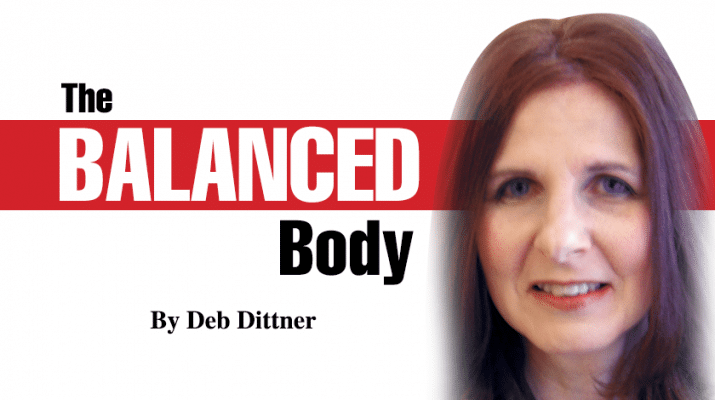The answer is yes, and there is clinical proof
By Deb Dittner
 February is American Heart Month and I wanted to take a different approach rather than the traditional approach to the care of your heart.
February is American Heart Month and I wanted to take a different approach rather than the traditional approach to the care of your heart.
You may remember a few years back when Debbie Reynolds (who I was named after by the way) passed only one day after the death of her daughter, Carrie Fisher (daughter of Debbie Reynolds and Eddie Fisher). It is reported that Ms. Reynolds died following a stroke but some believe that it was broken heart syndrome from the loss of her daughter.
What is broken heart syndrome? The symptoms are quite similar to that of a heart attack in accordance with a physical or emotional stress such as the death of a loved one (as in Debbie Reynolds’ case), a divorce or breakup, after a physically exhausting event (marathon, triathlon), an asthma attack, or an extreme happy surprise (winning the lottery).
The symptoms “feel” like a heart attack as chest pain and shortness of breath occur but there are no blocked coronary arteries and you will typically make a full and speedy recovery. This stress-induced cardiomyopathy causes dysfunction of the heart muscle despite the person having no previous heart condition and being healthy. Typically, women are more prone to broken heart syndrome than men.
The symptoms of broken heart syndrome include shortness of breath, chest pain, the irregular beating of the heart, low blood pressure, and fainting. These symptoms may sound like that of a heart attack and emergency care should be immediately sought to determine the cause through appropriate testing and diagnosis. Always best to err on the side of caution.
Testing is of utmost importance as this will help determine a heart attack versus broken heart syndrome. Testing would include a physical exam, review of past medical history, an electrocardiogram (EKG/ECG), angiography, chest X-ray, cardiac biomarkers in blood work, and cardiac magnetic resonance imaging. These tests will provide the necessary information to determine the correct diagnosis.
Response to stress
In broken heart syndrome, a stressful situation will have occurred. The EKG may show changes but not those seen in a heart attack. Blood testing will show no damage other than pressure being slightly elevated, and there will be no blocked arteries. Upon entering the emergency department, your symptoms will be looked at the same as a heart attack no matter what the final diagnosis.
The treatment of diagnosed broken heart syndrome will include medications to slow a heart rate, lower blood pressure, decrease any fluid buildup, and anti-anxiety medication to manage stress. Also breathing and relaxation techniques as well as stress management should be included.
On occasion, broken heart syndrome can lead to more serious heart problems: The heartbeat may be faster or slower than normal; damage to heart valves, low blood pressure, and possible fluid in the lungs. Follow-up is necessary to make sure you progress appropriately and develop no underlying medical condition.
Since there is no key to prevention of broken heart syndrome, you must take care of yourself through breathing and relaxation techniques, and stress management. Physical movement is necessary to improve your overall health and well-being and manage stress. If you take anti-anxiety medication, continue to do so as prescribed. Do not cope with stress through excessive alcohol use, smoking, drug use, or overeating or under-eating. These choices may lead to even greater health issues.
As noted in Reynolds’ case, her situation was fatal. In most situations, if you experience broken heart syndrome, recovery can occur in days or weeks with no permanent heart damage or risk of another. Follow-up with your health care provider may include an EKG or other testing depending on your specific case. These symptoms are not to be taken lightly, require appropriate testing for proper diagnosis, and followed-up to make sure your body heals as needed.
Deborah Dittner is a family nurse practitioner and health consultant. Her mission is to transform as many individuals as possible through nutrition and lifestyle changes. For more information, check out her website at www.debdittner.com or contact her at 518-596-8565.

